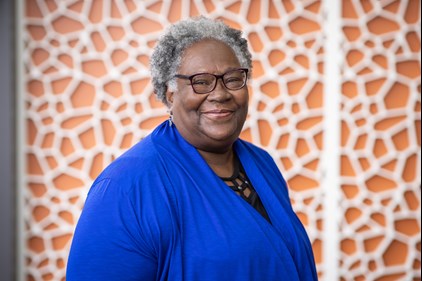The industry’s leading conference connecting cross-sectional stakeholders will be held April 15-17 in New Orleans. This year’s summit will showcase a lineup of seven case study presentations on impactful social determinants of health (SDoH) programs. Here’s a look at four of the sessions on the agenda.
The RISE Summit on Social Determinants of Health returns next month to deliver the actionable, scalable solutions needed to address SDoH and advance health equity. With three separate content tracks throughout both days of the main conference, attendees will hear from a lineup of more than 80 industry leaders who will share a variety of firsthand experiences and insights around addressing social needs to improve health outcomes.
This year’s agenda includes several case study presentations, offering a deep dive into boots-on-the-ground approaches and the lessons learned along the way.
Learnings from a public/private partnership to address accessibility to transportation in a local PA community

 One case study presentation will spotlight how three organizations, United Way of the Greater Lehigh Valley, AARP PA, and the Lehigh Valley Planning Commission (a regional government organization) aligned their efforts to address a key barrier to health care access throughout their community: safety and accessibility.
One case study presentation will spotlight how three organizations, United Way of the Greater Lehigh Valley, AARP PA, and the Lehigh Valley Planning Commission (a regional government organization) aligned their efforts to address a key barrier to health care access throughout their community: safety and accessibility.
RISE spoke with Carmen Bell, Sr. director, healthy aging, United Way of the Greater Lehigh Valley, pictured right, who will present the case study alongside Kellie VonStein, associate state director outreach and advocacy, AARP PA, and Becky Bradley, executive director, Lehigh Valley Planning Commission, about what the speakers have planned for the session.
The presentation will offer an inside look at how cross-sector organizations can successfully come to the table and develop a partnership that best leverages one another’s strengths, explained Bell. “It’s important to recognize the strengths of others in the community and that everybody brings something to the table,” she said. “So, the real task is to identify what you’re good at and work in that lane and identify what you’re not good at and let somebody else manage that. Everybody finds their path.”
The case study will break down the inner workings of what that process looked like and how the three organizations determined their roles based on their strengths. The speakers will also offer lessons learned from the partnership for other community-based organizations that want to develop similar collaborations.
“It’s so important to just never count anybody out,” said Bell. “You have to be open to everybody being able to play a role regardless of what their work may be. Talk to people, connect with them, and just be open. Everybody can play a role.”
The case study will also include the many nuanced details of getting the program off the ground, from how to obtain buy-in and funding, as well as the impacts to the community so far.
“There’s a sense of pride in being connected to something and seeing just how much you can accomplish things if you do it together,” said Bell. “Working together, we’ve leveraged a multi-million dollar investment into improving transportation infrastructure and creating an age-friendly community for people of all ages.”
Bell and VonStein will present the case study, Learnings from a public/private partnership to address accessibility to transportation in a local PA community, on Tuesday, April 16 at 3:30 p.m.
Cross-plan and multi-sector collaboration to advance health equity in Ohio
For this case study, two managed care plans, Buckeye Health Plan and CareSource, will share how they partnered with one another and with community organizations to improve health among members and their communities.
Corazon Eaton, director of health equity, Buckeye Health Plan, and Kate Tullio, associate vice president, health equity, CareSource, will offer their real-world examples of cross-plan and multi-sector collaborations focused on health related and social needs and what made their collaboration successful along with the barriers they encountered.
Driving member engagement and clinical impact with a personalized food as medicine program
Throughout this session, Jennifer Bradley, RD, project manager, population health operations, IU Health Plans, and Spencer Pratt, chief growth officer, NourishedRx, will shed light on how they worked together to implement a technology-enabled food as medicine program for high-risk members with type 2 diabetes.
Bradley and Pratt will share details about the program impact on clinical measures, nutrition security, and self-reported outcomes, as well as the tangible learnings and takeaways from their initiative for others to apply to their food as medicine programming.
A data-based approach to addressing SDoH: A look into children’s specialized hospital’s program in NJ and beyond
A panel from Children’s Specialized Hospital (CSH), an RWJBarnabas Health facility, will share learnings from their SDoH program. They’ll discuss the development and institution of the program to the collaboration with both frontline staff and families to ensure the process is embedded into patient care.
The session will cover an innovative data-based approach, starting with data capture at screening, the use of data to identify key focus areas, and how to use machine learning to assist with identifying and addressing adherence to outpatient appointments.
The CSH team will also discuss how they operationalized the program and weaved it into routine medical care.
The RISE Summit on Social Determinants of Health will take place April 15-17 at the Hyatt Regency New Orleans. Click here to learn more, including the full agenda, registration, and attendance details.

